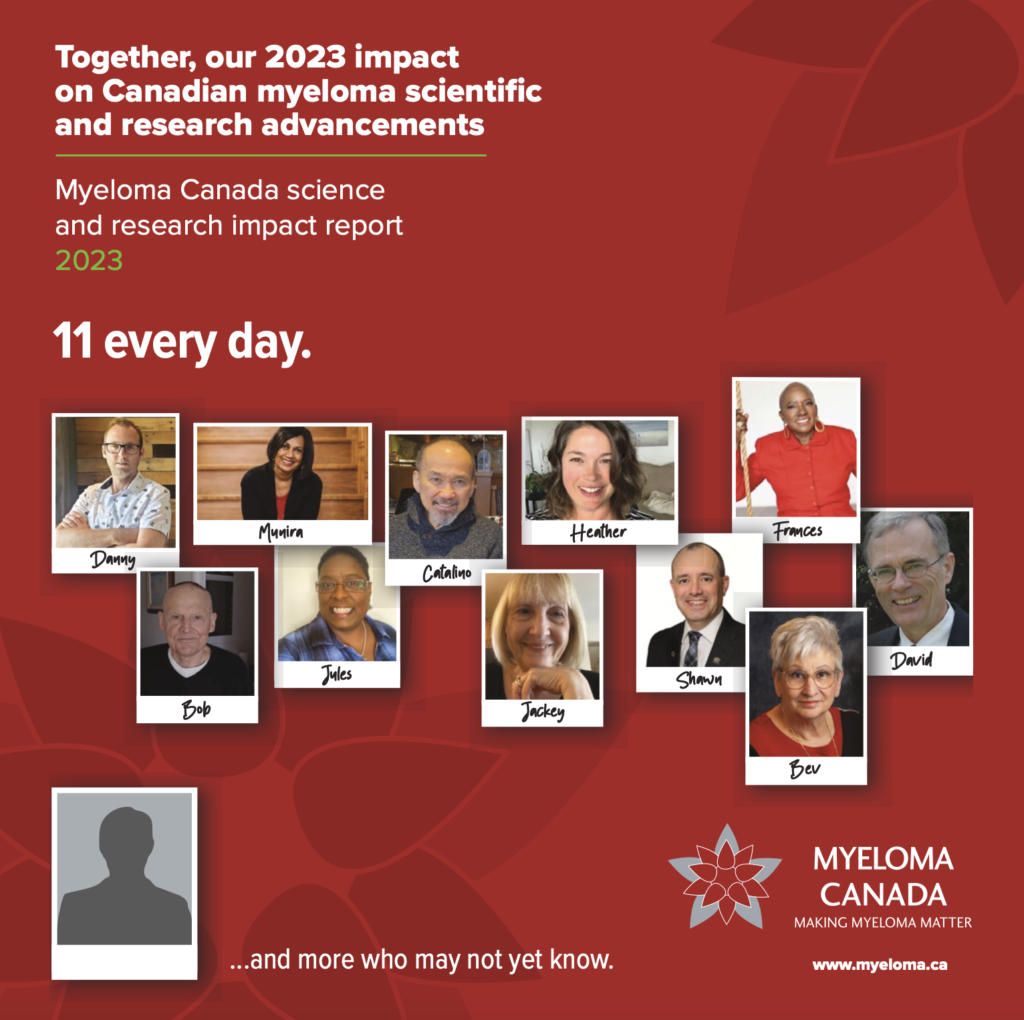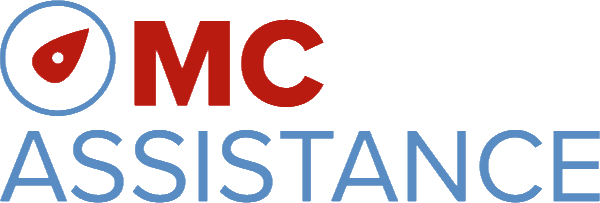What is the Multiple Myeloma March research fund-sharing partnership program?
The Multiple Myeloma March (MMM) research fund-sharing partnership program allows charitable organizations to partner with Myeloma Canada on their nearest MMM and be awarded a research grant of up to 50% of that march’s net proceeds!
We’re pleased to announce that four winners from 2023 will continue their participation in this year’s program, and two applicants with new research projects have been accepted this year.
Participants of the 2024 MMM Research Fund-Sharing Partnership Program
Airdrie Multiple Myeloma March
Partner: University of Calgary
Project title: Sarcopenia in Multiple Myeloma and AL AmyloidosisA condition in which myeloma light chains (Bence Jones proteins) are deposited in tissues and organs throughout the body. This occurs more commonly with lambda versus kappa Bence Jones proteins. In patients with amyloidosis, the light chain proteins bind to certain tissues such as heart, nerves and kidney rather than being excreted out of the body through the kidneys.: Impact of Treatment and Effects of Sarcopenia on ClinicalInvolving direct observation of a patient. Survival Outcomes, a Pilot Study at the Tom Baker CancerA term for diseases in which malignant cells divide without control. Cancer cells can invade nearby tissues and spread through the bloodstream and lymphatic system to other parts of the body. Centre
Principal investigator: Dr Victor H. Jimenez-Zepeda, Assistant Professor of Medicine, University of Calgary, Clinician Scientist, Tom Baker Cancer Centre
Project objectives:
- Assess the impact of sarcopenia (skeletal muscle loss) on survival outcomes
- Evaluate if sarcopenia in myeloma could be used as a frailty assessment tool
- Inform future programs that focus on preventing sarcopenia from progressing
Hamilton-Niagara Multiple Myeloma March
Partner: Hamilton Health Sciences Foundation
Project title: Comparing Outcomes between Progression-Free SurvivalThe time period during which the patient survives and the cancer does not become worse. The improved survival of a patient that can be directly attributed to the treatment given for the myeloma. This term identifies myeloma patients who are in complete remission versus those who have had an episode of relapse or progression. (PFS) and Time to Next Treatment (TTNT) amongst Patients with Multiple Myeloma
Research team: The myeloma group at Juravinski Cancer Centre
Project objectives:
- Explore the relationship between TTNT and PFS in myeloma to help clinicians make informed decisions about treatment selection, management strategies to optimize patient care, and the design of future clinical trials.
Kingston Multiple Myeloma March
Partner: University Hospitals Kingston Foundation
Project title: Impact of routine Septra prophylaxis in patients receiving an autologous stem cellThe basic unit of any living organism. transplant
Research team: Dr Bethany E. Monteith, HematologistA doctor who specializes in the problems of blood and bone marrow., Kingston Health Sciences Centre, Queen’s University, Kingston, ON
Project objectives:
- Improve the prevention of pneumocystis pneumonia (PCP) infection in patients undergoing an autologous stem cell transplant by evaluating the routine use of two antibioticsDrugs used to treat infection..
Quebec City Multiple Myeloma March
Partner: CHU de Québec
Project title: Use of immunoglobulins in MM patients receiving anti-BCMA therapy
Principal investigator: Dr Julie Côté, Hematologist-oncologist, Centre hospitalier universitaire de Québec, Quebec City, QC
Project objectives:
- Help clinicians better define the use of immunoglobulin in myeloma
- Establish the relevance of immunoglobulin prophylaxis based on IgG level
- Evaluate the impact of Ig administration on patients’ quality of life.
- Define vaccineA preparation of killed microorganisms, living attenuated organisms, or living fully virulent organisms that is administered to produce or artificially increase immunity to a particular disease. response in this patient population.
Windsor-Essex County Multiple Myeloma March
Partner: University of Windsor
Project title: Establishing a Multiple Myeloma Drug Screening Platform to Predict Patient Response to Therapy
Principal investigator: Lisa A. Porter, PhD; WE-SPARK Health Institute, Distinguished Professor, University of Windsor, Windsor, Ontario
Project objective:
- Establish an innovative screening platform to determine individual myeloma patient responses to select drug regimens
Vancouver Multiple Myeloma March
Partner: BC Cancer and the BC Cancer Foundation
Project title: Targeting Replication Stress Tolerance Genes for Myeloma Therapy
Principal investigator: Dr Peter C. Stirling, PhD; Terry Fox Laboratory, BC Cancer, Vancouver, British Columbia
Project objectives:
- Develop new chemical inhibitors of Mus81 (a protein that functions as an important treatment resistance mechanism in myeloma)to help create a novel therapeutic for myeloma
- Expand myeloma research activity in British Columbia





